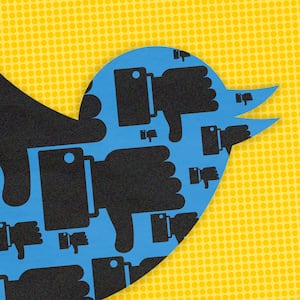If you use the right social media platform, it won’t take long to run into something you’ll find offensive.
Of course, those who post such comments likely hold strong views that clash with your own and, more often than not, the point of offense is something for which you won’t be alone in your disdain.
So, what do you do? Do you just scroll on by, pretending you didn’t read it? Do you send a private message telling them how you feel? Or do you join in the ensuing pile-on that has now lit up in the comments section—and throw in your own two cents worth?
Of course, with a pile-on, you’ll likely have more “power” to push your counterpoint across to the poster of the offensive material. There’s strength in numbers.
And perhaps the collective pile-on will sow doubt in the original poster, making them rethink their stance, and their offensive perspective or idea. With your sharp, poignant comments—and the same from the others—there’s a chance at generating a bit of social change.
Maybe your pointed response will bring a touch of justice into the world, as you stand up for whomever or whatever the original poster offended.
As you survey the virtual wasteland made of that offensive post, you smile, knowing that the pile-on was completely justified.
People don’t easily recognize they’re wrong, you muse, they think they’re right simply because they think they’re right. And thus, people won’t rethink their offensive remarks if you just subtly point them out. They need to see their own wrongness, and the best way to do this is to boldly announce the injustice and offensiveness of their words, collectively setting the offender ablaze, because when you have a whole offended mob working together, the perpetrator has nowhere to run.
And no doubt they will get the point once they are burning away at the electronic bottom of a social media pile-on. It may be ugly, but the pile-on is making the world a better place by the social media community courageously taking on injustice.
It sounds good, even noble, but if one thinks a bit further it’s reasonable to ask if such heroism represents the true motivation behind all this.
This is basically the question a group of researchers led by Anna Barron, a social psychologist at Princeton University, asked in a project they developed focused on understanding whether online shaming is a result of a desire to do good or a desire to feel good.
What they found is perhaps less than encouraging about the Internet as a forum for generating social justice.
Indeed, their research shows that the participants in their study were largely concerned with shaming by showing, loudly, that the original offender deserved the negative consequences of virtual wrath. Rather than a desire to identify and correct an injustice associated with a particular post, people were motivated by feelings of schadenfreude. They were getting their kicks out of watching the misfortunes of others.
In other words, the key moral emotion associated with the shaming pile-on was a hedonistic desire to watch someone else publicly burn.
Barron and her colleagues show us that modern social media users have a great deal in common with those unruly medieval peasants storming the castle with pitchforks and torches in hand, or religious zealots taking a stroll to the town center to catch the evening’s witch burning.
People don’t go after the social media offender to correct an injustice, they do it because they like watching the shitshow. They like seeing people who should, or are going to burn, burn.
As Ray Bradbury put it in the first paragraph of his masterpiece, Fahrenheit 451, it’s a pleasure to burn and it’s a “special pleasure to see things eaten, to see things blackened and changed.”
Social media is the perfect environment to let loose on this, because you don’t have to get too close to the flames and can always just walk away when the scene gets too ugly, comfortable in the knowledge that the burning is justified because those people deserve it.
Of course, this is nothing new.
The Jerry Springer Show certainly showed us that people love watching others incinerate publicly on TV. And the fascination with NASCAR—watching people drive fast in circles until someone crashes—is yet another example.
In fact, people seem to often get the greatest satisfaction watching celebrities meltdown and spontaneously ignite. How many people laughed away when Britney Spears had a public breakdown and shaved her head?
In contrast, how many tabloid articles tell us about the well-being of all our favorite celebrities and big names? We are sure you will find that none do. Why? Because that kind of information doesn’t sell to a public that gets its hedonistic pleasures out of the latest disaster.
So, the next time you read something on social media that pisses you off and gets your angry-reply-juices going, before posting ask yourself what your true motivation is.
Are you concerned with promoting justice? Or are you just getting-off on the misfortunes and mistakes of others?
It’s a pleasure to burn.










